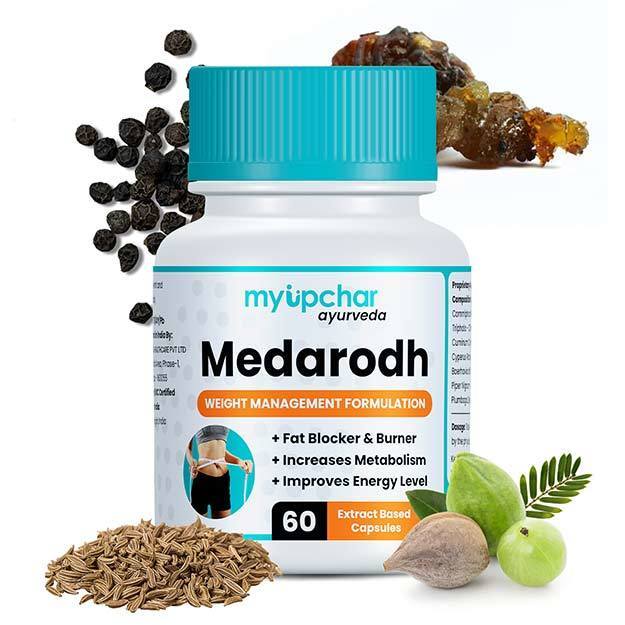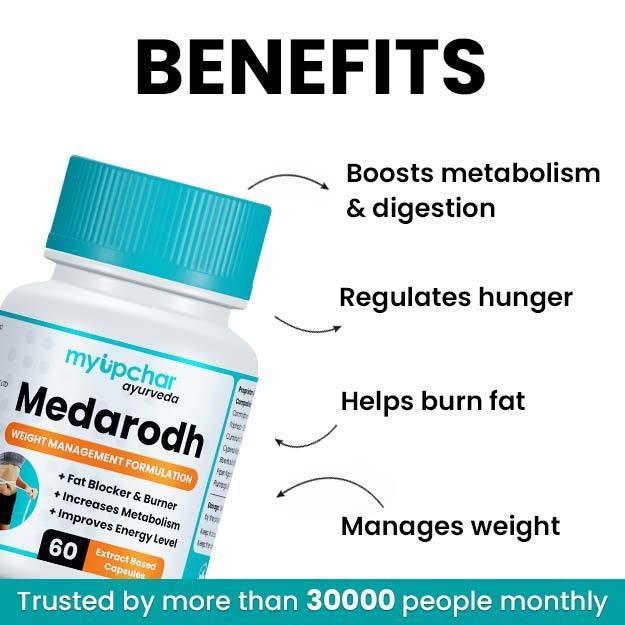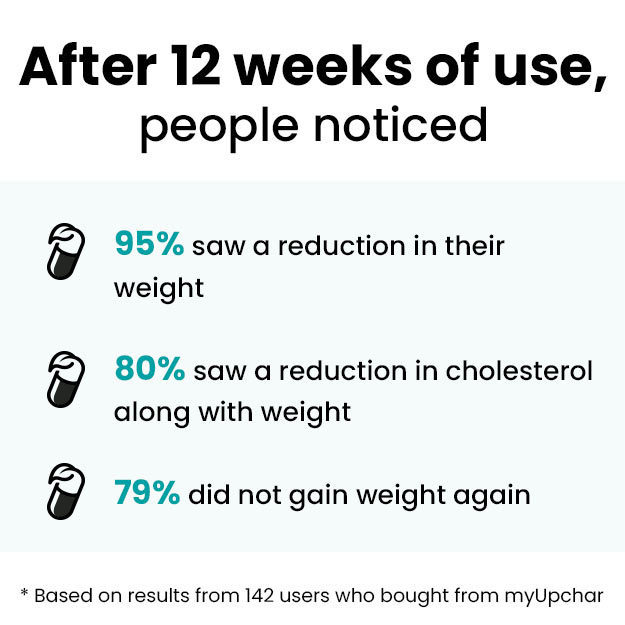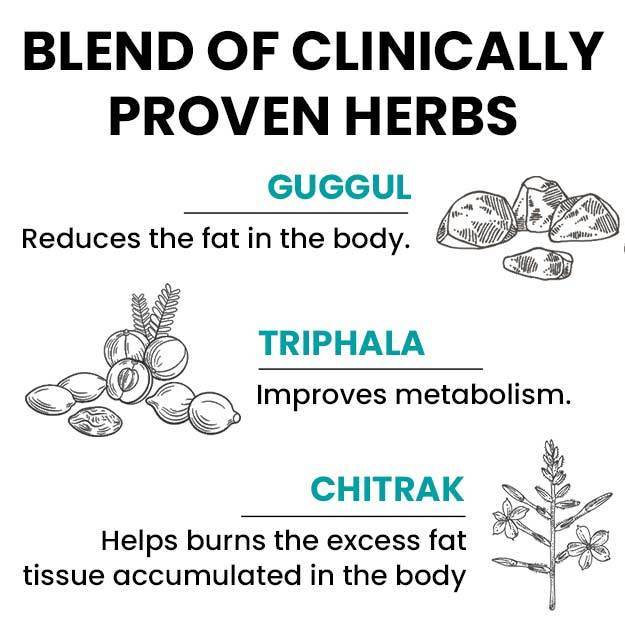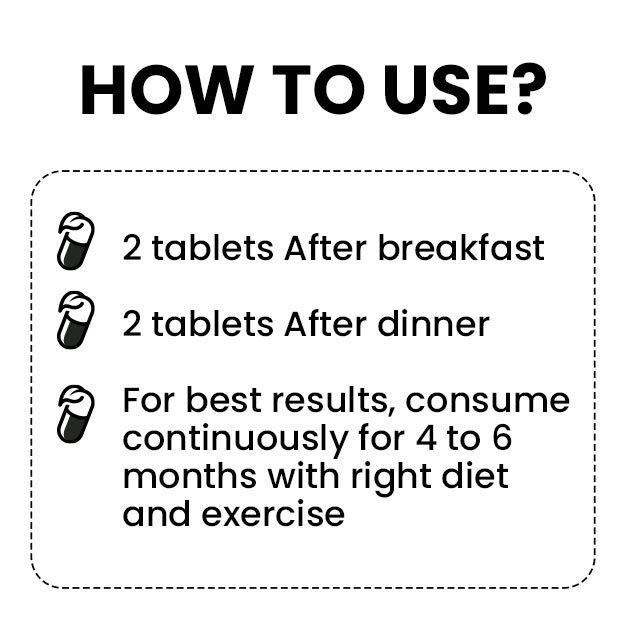Our bodies are constantly working to keep up the various processes and organs working at optimum efficiency. A lot of us may have heard the term metabolism, even used it at certain occasions, either to boast how good your metabolism is or to complain about slow it is. But do you know what exactly metabolism is?
Metabolism is the sum total of all the processes going on in your body. It includes the basic functions like energy generation, digestion, elimination, detoxification and all the other processes that are needed to keep you up and running. Various metabolic pathways are constantly active at the cellular level to generate molecules and compounds needed to feed the cellular machinery. They also aid in the transport of nutrients to different parts of the body. Looks a lot more complex this way, doesn’t it?
Let’s make it a bit easier and break down metabolic processes:
- Catabolism: Catabolism refers to the process of breaking down of complex compounds into simpler ones, like sugars are broken down into carbohydrates and proteins into amino acids, similarly fats are broken down into fatty acids. Catabolic reactions provide energy for the body.
- Anabolism: Anabolism refers to the processes that buildup smaller molecules into more complex compounds. This includes converting amino acids into proteins. These reactions take up the energy which is produced by catabolism and serve to build up body tissues and new cellular structures.
- मेटाबॉलिज्म ठीक रखने के लिए क्या खाना चाहिए - What to eat for good metabolism in Hindi
- मेटाबॉलिज्म के लिए फायदेमंद है नारियल तेल - Coconut oil for metabolism in Hindi
- मेटाबॉलिज्म में लाभदायक है कॉफी - Coffee for metabolism in Hindi
- मेटाबॉलिज्म तेज करें भरपूर नींद लेकर - good sleep for metabolism in Hindi
- मेटाबॉलिज्म बढ़ाने का तरीका है मसालेदार भोजन - Spicy Foods for metabolism in Hindi
- मेटाबॉलिज्म बढ़ाने के लिए ग्रीन टी पीएं - Green Tea for metabolism in Hindi
- मेटाबॉलिज्म बढ़ाने की दवा है अधिक देर तक खड़े रहना - Stand up More time is beneficial for Metabolism in Hindi
- मेटाबॉलिज्म ठीक करने का उपाय करें अधिक वजन उठा कर - Lift Heavy Things for Metabolism in Hindi
- मेटाबॉलिज्म बढ़ाने के लिए करें अधिक तीव्रता वाले व्यायाम - High Intensity Workout for Metabolism in Hindi
- तेज मेटाबॉलिज्म के लिए पिएं ठंडा पानी - cold water help in Metabolism in Hindi
- मेटाबॉलिज्म बढ़ाने का उपाय करें प्रोटीन से - Protein good for Metabolism in Hindi
- Metabolic rate and BMR
- मेटाबॉलिज्म कैसे बढ़ाएं - Home remedies to increase metabolism in Hindi
- Foods that increase metabolism
- Drink enough water to boost metabolism
- Coffee increases metabolism
- Pepper and spicy food improves metabolism
- Green tea benefits for metabolism
- Protein rich foods: legumes, fish and meat increase metabolism
- Dark chocolate for improving metabolism
- मेटाबॉलिज्म बढ़ाने का काम करती है लाल मिर्च - Cayenne Pepper for Metabolism in Hindi
- How to increase metabolism: Tips to increase metabolism
मेटाबॉलिज्म बढ़ाने की दवा है अधिक देर तक खड़े रहना - Stand up More time is beneficial for Metabolism in Hindi
मेटाबॉलिज्म बढ़ाने के लिए करें अधिक तीव्रता वाले व्यायाम - High Intensity Workout for Metabolism in Hindi
Metabolic rate and BMR
The rate/speed at which the various metabolic processes occur in your body is known as the metabolic rate. Metabolic rate varies depending on the factors like environment, age, gender, and amount of physical activity.
This is because any physical activity or the process of digestion increases the need for energy. On an estimate, digestion causes a 10% increase in the metabolic rate in an individual. This is known as the thermic effect. (1)
Basal metabolic rate (BMR)
Basal metabolic rate is defined as the rate of metabolism of an awake person at rest, who has not eaten anything for the past 12 to 18 hours.
BMR depends on your height, weight, age, gender, physical activity, lifestyle habits, diet and total lean mass. Your basal metabolic rate accounts for about 50 to 80% of your daily metabolic need.
BMR is generally higher in men, who need an average of 7100 kJ of energy as compared to women, who require about 5900 kJ of energy per day. Find men health information
Contrary to popular belief, fat people may or may not actually have a low BMR since they need more energy to perform the day to day body functions because of all the extra fat.
To calculate your BMR in kilocalories per day, you will need to add your age, weight and height in this mathematical equation.
BMR = 10m + 6.25 h - 5a + s;
where "m" is your weight measured in kilograms, "h" is your height in centimetres, "a" is your age in years, and "s" stands for sex. Men should add 5 to their score and women should subtract 161 from the total.
So, BMR for a 25-year-old woman who is 5 feet 2 inches tall and weighs 50 kilograms would be 1,307. And, for a 25-year-old man who is 5 feet 10 inches tall and weighs 72 kilograms is 1,760 kilocalories a day.
Similarly, the total expenditure of your energy per day can also be calculated by multiplying your physical activity factor with your BMR. The factor varies according to the level of your physical activity.
Example: If your BMR is 1200 Kcal/day and you do moderate physical activity (let’s take the physical activity factor for this to be 1.5), the total energy expenditure would be 1800 Kcal/day. (2)
Foods that increase metabolism
Apart from the above-mentioned remedies, you can also add some specific foods to your diet that would aid you in balancing your energy needs and improving your metabolism. Let us have a look at some of these foods and the scientific facts behind their use.
Drink enough water to boost metabolism
Water is probably the most underrated liquid when it comes to health and healing. But it should not come as a surprise that taking enough water and keeping yourself hydrated would actually help to increase metabolism. And what better? Now we have scientific studies to prove the benefits of water on BMI and body weight. (17)
According to an article published in the Journal of Clinical Endocrinology and Medicine, drinking 2 litres of water every day increases the total energy consumption of your body by 400 J (18) and this effect is believed to be much more prominent if you drink cold water. This is because the body takes more energy to first bring that water to the body temperature. However, the evidence remains unclear for this (19). You can still try it and see if that works better for you. It is water after all and is going to help you anyway.
Chose water over juices and soft drink to reduce the empty calories and replace more of those calories with healthier proteins that pace up your metabolism.
(Read more: How much water to drink in a day)
Coffee increases metabolism
If you are an avid coffee drinker or a coffee lover, you might have already know the health benefits of this elixir. But, did you know that your daily cup of coffee can help you with your slow metabolism? Clinical studies suggest that your body metabolism shoots up right after you have your cup of coffee, which is due to the increment in the carbohydrate and fat oxidation. (20)
Further studies report that caffeine is responsible for the thermogenic effects of coffee and these effects were marked at least 3 hours after coffee intake. (21)
So, the next time someone asks you the secret behind your metabolism you can give a justified reason for being a coffee lover.
Pepper and spicy food improves metabolism
Traditionally, chilli pepper, cayenne pepper. and spicy and hot foods are believed to promote metabolism and improve BMI. This happens because digestion and food intake increase the energy expenditure of the body, which in turn improves metabolism. Clinical studies have found that regular use of red pepper increases body heat and energy demand but it also increases the desire for more food (25). If only you can add that extra spice to your diet and keep yourself from eating more, it might benefit you in improving metabolic function.
Further studies have found that capsaicin is the active component present in hot peppers that creates a negative energy balance and promotes weight loss. (26)
A recent article published in the British Journal of Nutrition, mustard is yet another hot food that hastens body metabolism with effects similar to that of red peppers. (27)
Piperine present in black pepper is yet another active compound that increases sugar and fat metabolism. (28)
However, too much spicy food can also cause stomach problems and other gastrointestinal disorders. It is always advisable to take hot foods in moderation.
Green tea benefits for metabolism
Green tea is one of the most common drinks promoted for a better metabolic function and for reducing weight quickly. Studies demonstrate that green tea extracts are rich in catechins and caffeine, which improve fat metabolism and help in weight management (22). It is also found to be effective in improving insulin sensitivity and hence glucose metabolism in healthy adults when consumed along with a regular exercise routine. (23)
Although it is not as strong as caffeine, a chemical compound that is found in much higher content in coffee and some other foods, the long term effects are useful enough. (24)
So, add that long due cup of green tea to your diet to get a better metabolic function.
Protein rich foods: legumes, fish and meat increase metabolism
Legumes and pulses are protein and fibre rich foods which are considered to be the best choice of nutrients for people looking to improve metabolism. Research evidence suggests that taking protein-rich diet aids in increasing the metabolism to a much faster rate as compared to a high carbs diet (29). It has further been demonstrated to reduce fat and oxidative stress, two of the major culprits behind slow metabolic rates. (30)
According to a recent article in the journal Amino acids, L-arginine, an amino acid aids in improving oxidation of nutrients, increasing lean muscle mass and reducing extra fats (31). Some of the L-arginine rich foods include soybean, tofu, peanuts, dairy products and chicken.
If you are not fond of legumes or love a more non-vegetarian diet you can add this protein in the form of chicken, fish and other meat products, long as they are not fried. Just like legumes, all of these foods have a positive effect on the mitochondria function, which means they increase the energy demand and expenditure of your body. (32)
Dark chocolate for improving metabolism
If dark chocolate is one of your guilty pleasures you already have the key to an improved metabolism in your hands. Research studies indicate that consuming 40g of dark chocolate per day not only has a direct effect on increasing your metabolic functions but also improves your gut microflora, thereby improving your metabolic rates (33). Furthermore, chocolate and cacao host an array of antioxidants which reduce metabolic stress and improve body functioning. It is even evidenced to be effective in improving circulation and brain function in older people. (34)
Though most of these benefits only remain constricted to dark chocolate. Milk chocolate and white chocolates do not seem to share the metabolic benefits. (35)
So the next time you have a chocolate craving, opt for the darkest one in the aisle.
How to increase metabolism: Tips to increase metabolism
It is a common belief that a fast or slow metabolism is primarily a genetic factor and not much can be done about it. Though if you are a health enthusiast you might know that this is one of the biggest myths. While genes and heredity may have some role in keeping your metabolism slow or fast, it is not the major culprit and neither are those chronic diseases most people keep complaining of.
We already know that metabolism comprises both generating and breaking down of energy. Any person who has a higher energy intake than expenditure is at high risk of obesity and weight gain. Your body takes the necessary energy from food to maintain all its activities and stores the rest in the form of fat.
On a general note, people who have more lean muscle mass and a higher level of physical activity have a better metabolic rate. This is because muscle cells burn more energy than fat cells.
However, just eating right, or just adding exercise may not help you as much as you would think. A proper balance between a balanced diet and regular exercise is essential to this process or else all those dieting and exercising routines may just go in vain.
Here are some tips that might help you in achieving that high metabolic rate along with helping you trim off those extra inches:
- Avoid a crash diet since it slows down your metabolism and makes it even harder to lose weight. Instead, opt for an intermediate diet plan. Studies indicate that fasting intermittently is not more beneficial than your standard diet plans. (3)(4)(5) Though intermittent fasting is a much better option since it gives you a feasting window. Depending on your choice, you can either go for alternate day fasting, 2 days fast in a week (5:2 diet) (6) or a 16:8 fasting wherein, you eat the first meal of your day at around 10 am and the last meal at about 8 pm, so you are eating for 8 hours and fasting for 16.
- Regular exercising is yet another way to increase your metabolism. Physical activity needs more energy thus increasing the total energy demands of the body. According to CDC, about 150 min of moderate and 75 min of vigorous exercise can help you achieve a faster metabolism and maintain a healthy weight and metabolism (7). However, if you want to lose weight, you might need more physical activity, depending on your body type. This is where calorie restriction and a balanced diet would come to your aid. Fewer calories mean lesser energy for total body functions and your body would adjust its metabolic needs according to it.
- Most people advise against skipping breakfast if you are looking forward to better metabolism and weight loss benefits. Though scientific evidence suggests that having breakfast or skipping it does not have a major impact on your BMI (8)(9). If you are one of the people who love breakfast, you can take more proteins and fewer carbs and fats. Research evidence indicates that such diets improve glucose and fat metabolism in the body and reduce unnecessary binging throughout the day. (10)
- Increasing the frequency of meals is yet another belief associated with a better metabolism. However, if you tend to eat a lot in all of those meals, the whole effort is just adding up your total energy load and harming your metabolism. In fact, studies indicate that taking frequent meals has no significant impact on metabolism and may increase hunger pangs in some individuals. (11)(12)
- If you are not getting enough sleep, it may be responsible for dysfunctional metabolism, as evidenced by research. (13) (Read more: Causes of sleep deprivation)
- Certain medical conditions like thyroid dysfunction may be responsible for slow metabolism, if you are having a hard time improving your metabolism, it is better to talk to a doctor. (14)
- Though they are an essential part of various metabolic pathways and taking more unsaturated fats is good for your health and may decrease LDL (bad) cholesterol. Fats and oils do not have an active role in increasing your metabolism. This includes the much famous coconut oil. Yes, it does contain medium chain fatty acids which have been found to increase fat oxidation in short term (15) coconut oil itself does not have any such effect on diet. (16)
References
- Better health channel. Department of Health and Human Services [internet]. State government of Victoria; Metabolism
- Roy E. Weiss, Samuel Refetoff. Basal Metabolic Rate. (Seventh Edition), 2016 ; science direct [internet]
- Catenacci VA, Pan Z, Ostendorf D, Brannon S, Gozansky WS, Mattson MP, Martin B, MacLean PS, Melanson EL, Troy Donahoo. A randomized pilot study comparing zero-calorie alternate-day fasting to daily caloric restriction in adults with obesity. 2016 Sep;24(9):1874-83. PMID: 27569118
- Tinsley GM, La Bounty PM. Effects of intermittent fasting on body composition and clinical health markers in humans. 2015 Oct;73(10):661-74. PMID: 26374764
- Alhamdan BA, Garcia-Alvarez A, Alzahrnai AH, Karanxha J, Stretchberry DR, Contrera KJ, Utria AF, Cheskin LJ. Alternate-day versus daily energy restriction diets: which is more effective for weight loss? A systematic review and meta-analysis. 2016 Sep;2(3):293-302.PMID: 27708846
- Roger Collier. Intermittent fasting: the science of going without. 2013 Jun 11; 185(9): E363–E364. PMID: 23569168
- Center for Disease Control and Prevention [internet], Atlanta (GA): US Department of Health and Human Services; Physical Activity for a Healthy Weight
- Zhang L, Cordeiro LS, Liu J, Ma Y.The Association between Breakfast Skipping and Body Weight, Nutrient Intake, and Metabolic Measures among Participants with Metabolic Syndrome. 2017 Apr 14;9(4):384. PMID: 28420112
- Min C, Noh H, Kang YS, Sim HJ, Baik HW, Song WO, Yoon J, Park YH, Joung H. Skipping breakfast is associated with diet quality and metabolic syndrome risk factors of adults. 2011 Oct;5(5):455-63. PubMed PMID: 22125684
- Kamada I, Truman L, Bold J, Mortimore D. The impact of breakfast in metabolic and digestive health. 2011 Spring;4(2):76-85. PMID: 24834161
- Raynor HA, Goff MR, Poole SA, Chen G.Eating Frequency, Food Intake, and Weight: A Systematic Review of Human and Animal Experimental Studies. 2015 Dec 18;2:38. PMID: 26734613
- National Health Service [internet]. UK; How can I speed up my metabolism?
- Vij VA, Joshi AS. Effect of 'water induced thermogenesis' on body weight, body mass index and body composition of overweight subjects. 2013 Sep;7(9):1894-6. PMID: 24179891
- Brown CM, Dulloo AG, Montani JP. Water-induced thermogenesis reconsidered: the effects of osmolality and water temperature on energy expenditure after drinkin. 2006 Sep;91(9):3598-602 ,PMID: 16822824
- Bracco D, Ferrarra JM, Arnaud MJ, Jéquier E, Schutz Y. Effects of caffeine on energy metabolism, heart rate, and methylxanthine metabolism in lean and obese women. 1995 Oct;269(4 Pt 1):E671-8. PMID: 7485480
- Diepvens K, Westerterp KR, Westerterp-Plantenga MS. Obesity and thermogenesis related to the consumption of caffeine, ephedrine, capsaicin, and green tea. 2007 Jan;292(1):R77-85. Epub 2006 Jul 13. PMID: 16840650
- Mary-Jon Ludy and Richard D. Mattes. The effects of hedonically acceptable red pepper doses on thermogenesis and appetite. 2011 Mar 1; 102(3-4): 251–258. PMID: 21093467
- Magrone T, Russo MA, Jirillo E. Cocoa and Dark Chocolate Polyphenols: From Biology to Clinical Applications. 2017 Jun 9;8:677. PMID: 28649251.
- Petyaev IM, Bashmakov YK. Dark Chocolate: Opportunity for an Alliance between Medical Science and the Food Industry?. 2017 Sep 26;4:43. PMID: 29034240





